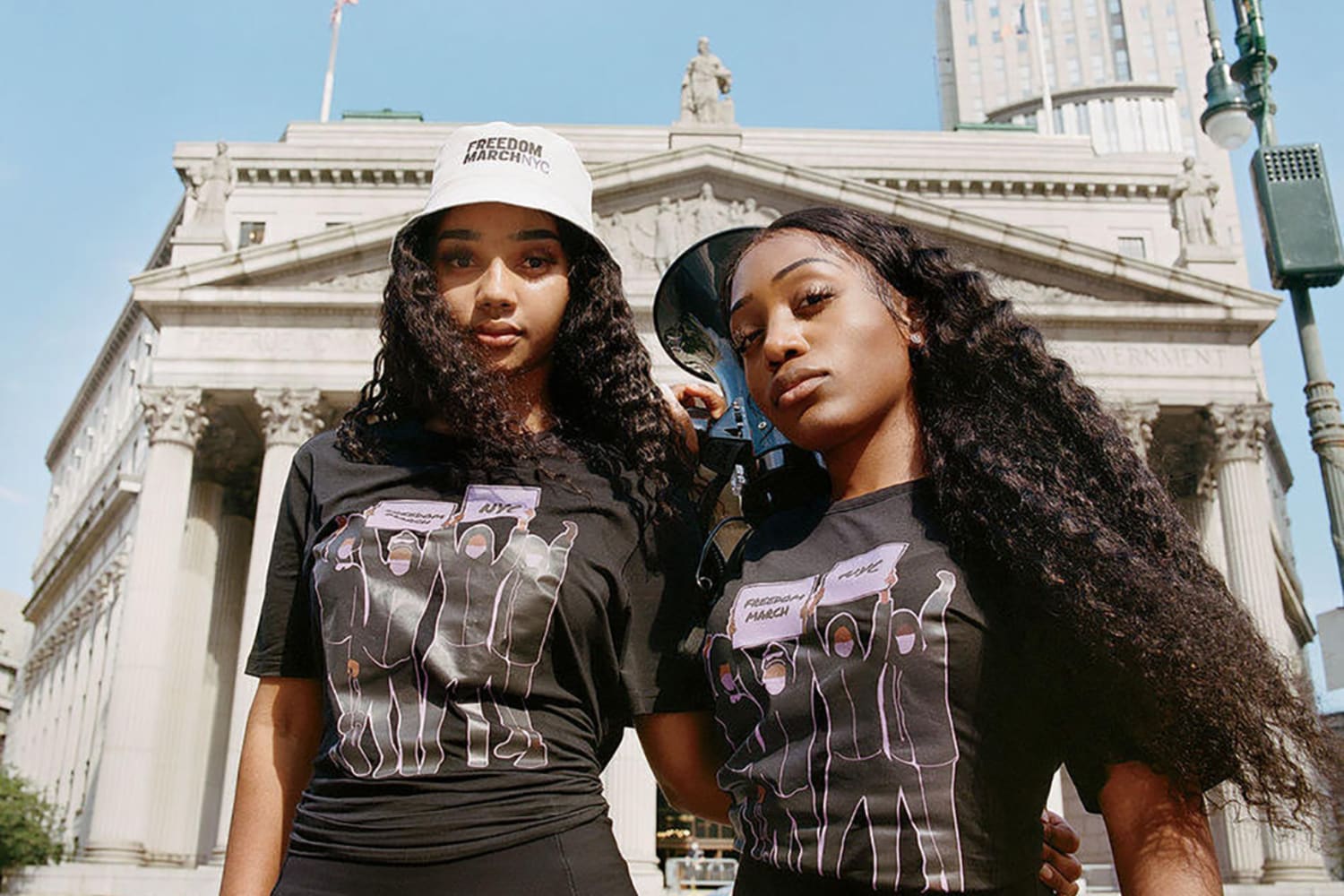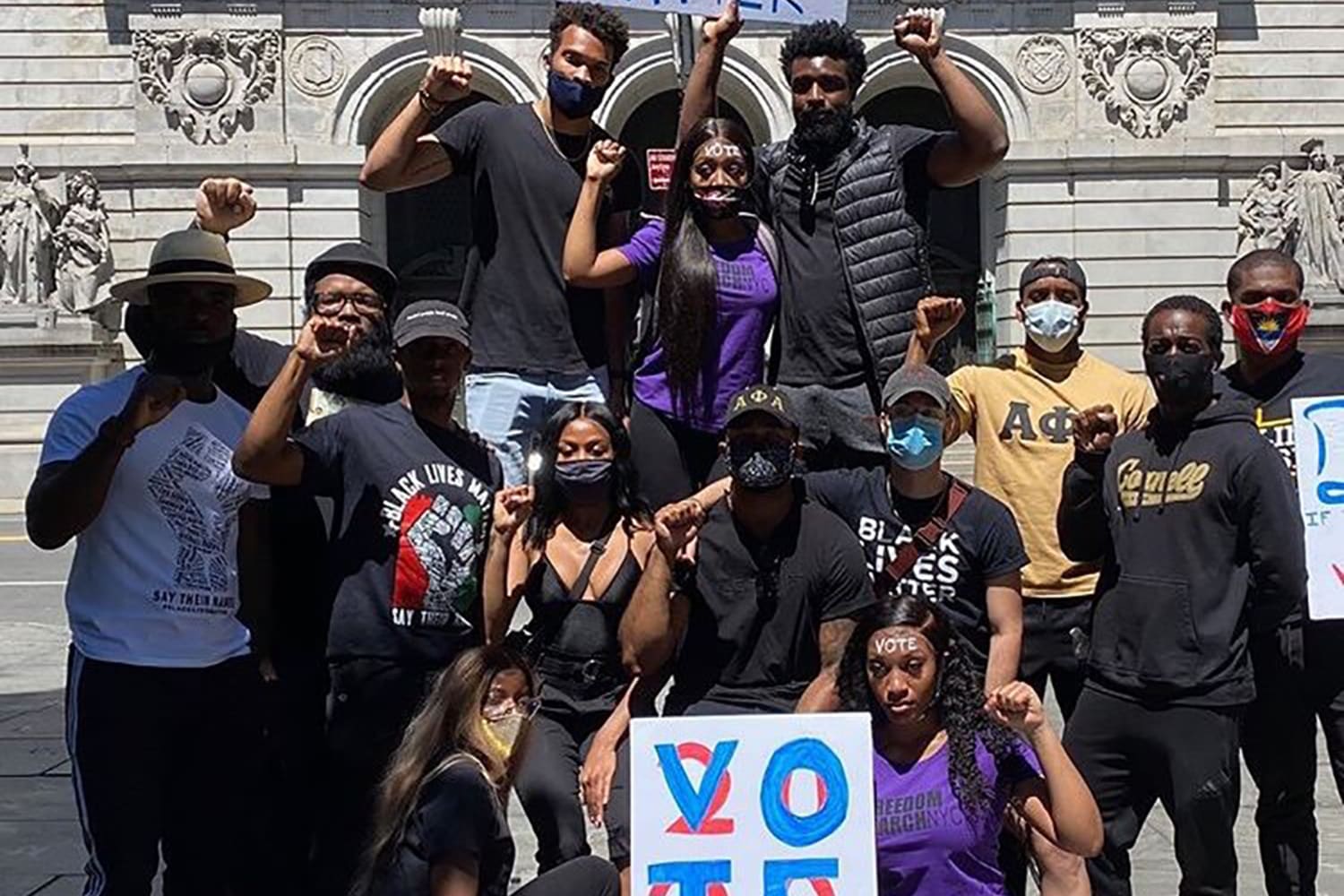Why did you decide to launch Freedom March NYC?
Freedom March NYC really came to be at the height of the George Floyd civil unrest in May. My friend was at a protest and she just saw a lot of chaos outside. And I wanted to go outside, I’ve protested before, but it just seemed really really loud and not necessarily safe. So we decided to organize our own march.
The march started off with hundreds of people and the crowd just got larger as we marched through streets and met up with other protestors. And we ended that march with some speeches and people left really moved and they wanted more from us and hence Freedom March NYC was born. Since then, we’ve organized other marches, collaborated with other organizations and hosted vigils.
We also have this thing where we say, “demonstration to legislation.” We’ve worked with local elected officials to push some of the policy changes that we want to see through in 2021, which include getting police officers out of classrooms, redistributing the police budget, the creation of a civilian review board and also the creation of a youth commission in New York City.
What advice do you have for brands on how to engage with social justice issues and movements like Black Lives Matter?
Outside of just working with activists and offering them money, address the internal work that you’re doing. What concerns do your current employees have? How does your board look, how does your C-suite look? What about the senior positions? It’s one thing to pay someone $5,000 to work with you one time so you can say, “this is the work we did to support Black Lives Matter,” or even to make a donation—which is great. But you have to make sure that you’re also doing that work internally. It’s important to show that you have a continued commitment beyond donating funds.
Do you think that digital activism is here to stay?
Social media provides an accessible way for people to digest information and receive information that they haven’t received in their education or elsewhere, and it spreads rapidly. So I don’t see a decline in the use of social media [after the pandemic]. I still see the two—social media and people taking to the streets—working hand in hand.
You’re still going to have people in the streets, and you’re still going to have people very much on social media.
What are the implications of digital activism for brands?
I would say just making sure that you’re on top of your social. Are you showing on your social what your company or what your brand looks like internally, and what changes you have made? If there are any changes to your mission, show how you want to see long term justice and results. That should be on your social media—people should be able to go to your page and say, ok, I get what this brand is about.




